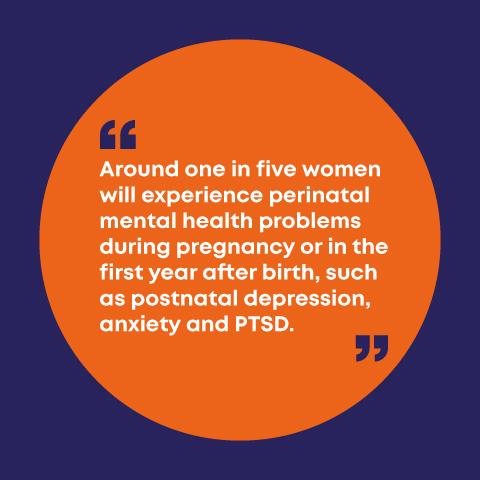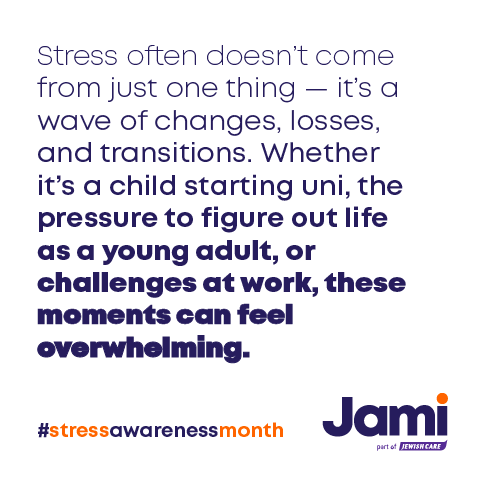
Find out how work anxiety can affect our mental health and get tips from a counsellor from Jami Qwell, our online counselling platform, about how to make our work weeks and weekends more enjoyable and manageable.
There you are, trying to enjoy the last of the weekend, making the most of your final opportunity to relax before the start of a new week. Then, thoughts of work creep into your head. You start thinking about your to-do list, and about everything you have to do for your work and family in the week to come. There’s a big work project looming, your home life is hectic, and you can’t stop doom scrolling on your phone. A sense of anxiety settles over you like a small grey cloud. You’re never going to be able to relax now. The Sunday Night Dreads have got a grip on you.
New government campaign addresses the problem
The Sunday Night Dreads, or Sunday Night Scaries, are now such a common phenomenon that the government has launched a new Every Mind Matters campaign that offers a test, which you can use to evaluate the amount of stress you’re feeling. They claim that 67% of people get the Sunday Night Dreads, and that the stress is usually at its worst at around 5pm on a Sunday evening.
Everybody feels this way sometimes
“Both personally and professionally, I’ve talked to many people who spend Sunday evenings dreading Monday morning,” says Gemma Campbell, a Kooth Counsellor. “Although it could just as easily happen to you on a Monday night, if Tuesday is the first day of your working week.
“It’s the type of anxiety where you’re anticipating what’s going to happen in the week to come. You could be worried about work pressures, home pressures, or a combination of the two.”
What’s getting to you?
When it comes to work pressure, according to Campbell: “People are likely to worry about work if they have a major project coming up, or if they know that their workload is going to be really busy in the coming week. Or there might be something going on at work that’s making them unhappy, such as a tricky relationship with a boss or co-worker.”
On the other hand, home pressures might be contributing to your anxiety. “This is particularly the case for working parents,” says Campbell. “As well as work, they have to think about childcare, preparing meals, and looking after their children’s practical and emotional needs. It can add to a feeling of general overwhelm about how you’re going to balance the demands of work and home life and get through the week.”
Additionally, you might be stressed about not getting enough sleep or not having time to do the fun activities that help to lower your anxiety, such as meeting up with friends.
Anna’s story: Sunday was my least favourite day
Anna, who’s in her 20s, says that in her old job, she used to be terrified of the start of each week.
“I used to spend all week working so hard, then at the weekend, I’d be physically and emotionally exhausted and absolutely dreading the start of the next week.
“I used to have a lot of existential fear, wondering, ‘Am I in the right place in my life? Do I want to be in this job? Am I making the most of my 20s?’ Sunday never felt like a break. In fact, I hated that day the most.”
Feeling guilty for feeling bad
Anna’s feelings were compounded by the fact that she felt guilty about not enjoying her weekends.
“I wanted to live in the present and be grateful for what I had, so it felt quite shameful to talk about my feelings.”
Too much pressure
Anna believes that people can get the Sunday Night Dreads due to a variety of different factors.
“It can be because you’ve got a toxic or highly stressful workplace, because you’re discontented at work, or because you have a busy week ahead.
“It’s not always to do with having an awful job, though. Sometimes, Sundays can feel like New Year’s – that bittersweet feeling when you have a break and a fresh start and feel an extra pressure to be productive and aligned, and the need to set new goals. It can be really hard to get the right balance of productivity and relaxation.”
Spread the good times throughout the week
Now, Anna’s in a better place emotionally and feels more fulfilled. She’s changed her job, which was a source of stress, and has started up some old hobbies again, which takes some of her focus off work.
“I also spread my activities throughout the week,” she says. “So, I might do a hobby, see friends, or go out for drinks on weeknights. This means I don’t depend on weekends as my only fun time.”
She adds that it’s important to share the load with friends. “It was helpful to talk to people about how I was feeling,” she says. “I was really surprised to hear some of my closest friends saying they’d experienced similar things. It helped me feel more normal and less alone.”
Tips for managing the Sunday Night Dreads
Qwell Counsellor, Gemma, shares these ideas for how to get rid of the Sunday Night Dreads and reclaim your weekend for rest and relaxation.
1. Talk to HR / your line manager
If work worries are giving you anxiety, whether that’s to do with your workload or a difficult relationship, talk to your line manager or someone in HR to see what support they can offer you. Can a co-worker take on some of your workload? How can HR or your line manager help resolve problems between you and another team member?
2. Schedule something enjoyable for the start of the working week
Put something fun in your diary for Monday morning or lunchtime. Can you meet a coworker for coffee first thing, or get together with a friend at lunch? Or you might try to find something small that will give you pleasure on the way to work, like taking a diversion through a park.
3. Ask for help at home
If stresses at home are on your mind, ask for help from your friends, family or anyone else who can lend a hand. Could another person make dinner or pick up the kids from school? Could the kids pick up their clothes from the floor? Don’t take on the responsibility for doing it all – delegate!
4. Find small moments of calm
So much of life happens at a hectic pace, we can often feel like we’re always on the run. Anything that helps you to relax, even for five minutes, is beneficial. It might be finding moments to meditate, breathing deeply while the kettle boils, or taking time out to stroke the dog.
5. Write down your feelings
Get your thoughts out of your head by setting a timer for ten minutes and writing about your anxieties. Feel free to rant: no one else is going to read it. This kind of mind dump exercise can help you name your anxieties and feel more in control.
6. Shut out work and media “noise”
Reclaim your quiet day and decide not to read any emails, newspapers or social media on a Sunday. It can wait. Allow yourself to press pause on the outside world and give yourself a real day off.
7. Celebrate small successes
We can be so concerned with our huge to-do lists that we don’t celebrate our small achievements. If you’ve walked the dog, repotted a plant, or sent a friendly text to someone who’s going through a hard time, congratulate yourself. It will help you to focus on the positive.
8. Separate work and home, if possible
If you can, create a separate space for your work, so that you don’t have to look at your computer and work papers on a Sunday. If you work in the living room, put your laptop in a cupboard where you can’t see it. That way, you won’t be tempted to just quickly check your email and set off a train of work-related worries.
Finding balance amid a busy life can be quite difficult, but there are small things you can do to make a difference.



